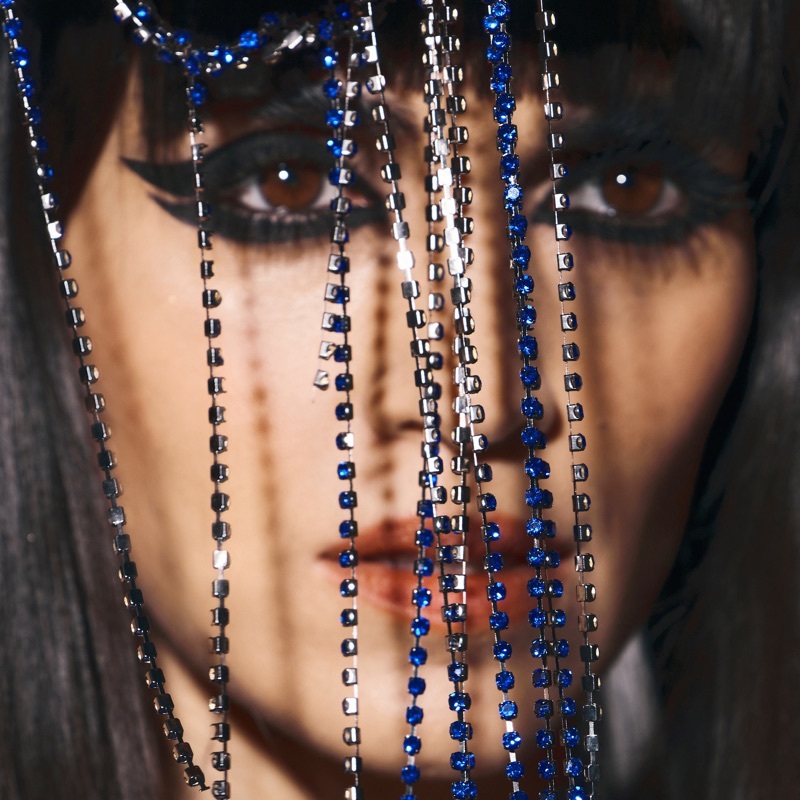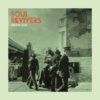The restricted freedom of women in Iran is an issue that has been thrusted into the spotlight recently in the last few weeks. Hijab-burning, hair-cutting protests all over the country have been sparked by the supposed police brutality of Mahsa Amini, a woman who was punished for not completely following the nation’s strict dress code. On Israel-born Iran-heritage Liraz Charli’s latest album Roya , she could be seen as singing to Iran’s defiant activists. Giving them strength by expressing her fantasy of a peaceful world in the Persian mother tongue; Roya is the Farsi word for fantasy. Furthermore, Liraz shows support for the revolt by demonstrating her own risk-taking; recording an album that teams six Israeli musicians with five Iranian performers. Two countries that since 1985 – after Liraz’s parents exiled to Israel from Iran – have residents that are notoriously forbidden from engaging with one another.
Although Roya is a continuation from 2020 predecessor Zan (Woman), a boundary-breaking album that also had Liraz collaborating with Iranians, this time the risk-taking has notched up a level. The brave musicians physically recording together live in the same studio space rather than piecing together sessions over the internet. This is what makes Roya more bold, more tactile and delivers a stronger message of freedom.
Recorded in a neutral zone of Istanbul, Roya is an exhilarating, meaningful record that continues Liraz’s decade-crossing, society-hopping brand of music. She takes us deep into the heart of a culture she holds dearly with recognizable Iranian instruments of tar and lute accompanied by Liraz’s Farsi-language singing but invigorates them with electronic effects and the characteristics of various genres. Opening title track ‘Roya’ could imagine Jean-Michel Jarre’s ‘Oxygène (Part IV)‘ blasting out of a speakers placed in the middle of a Middle-Eastern food market. Our first step in Liraz’s utopian fantasy is encouraging when Liraz sings in Farsi: “I will not lose my hope/You’ll see, our hearts will cross.”
‘Azizam’ (Dearest) is funkalicious ’70s disco recalling the strings and wah wahs of one of Liraz’s idols Googoosh. It describes the love between Liraz and her secret Iranian’s friends, as if it was some kind of Romeo-and-Juliet long distance romance. Bonded together in spirit even if physical closeness is at a premium, it not a song focused on sadness. As shown by Liraz’s bouncy vocals, it embraces the rather comical silver lining of such an absurd situation. Furthermore, the synth-funk ‘Bishtar Behand’ delivers a similar message of embracing laughter as Liraz sings: “Turn night into day for me. Pull me hard from the abyss, towards your body. Pull me always, towards the freedom. Make me laugh now, laugh more. Dance with me, as if there was no revolution. We will sing and march together.”
Among the joyfulness is ‘Tanha’ (Alone), a song written on the day in which Liraz was waiting for her Iranian collaborators to meet her in Istanbul. The emotions in her voice that front the psychedelic instrumentation within, as well as the lyrics, express her anxious anticipation and how she saw this meeting as symbolically breaking barriers between the cultures – almost comparable to the handshake of Trump and Kim Jong Un.
If raw emotion is felt on ‘Tanha‘, it’s even more heightened on the finale of the album. Roya concludes with a second version of the title-track. A slower more stripped back version with just piano, lute, Liraz’s voice and only the female performers included, it was an impromptu decision on the final day of their studio meeting, just hours before the Iranians had to travel back home. Effectively a farewell song, it’s undeniably Liraz’s most palpable recording to date. She sighs and is on the brink of crying before ending with the words “Thank You.” Words that could be directed at both her country-crossing music companions but also the women currently breaking their own barricades in the current dress-code protests.




